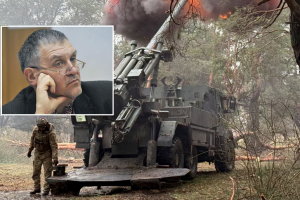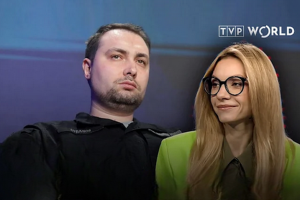Ukraine-EU: summit without a declaration
The 21st annual Ukraine-EU Summit held in Kyiv on July 12-13 ended without the approval of a declaration traditional for this event. But we should not dramatize this fact. The joint declaration was not approved for one reason: Kyiv insisted that a phrase from the Association Agreement on the support of Ukraine’s “European aspirations” be included in the declaration.
The essence of the summit lies in the fact that it opened a new stage of cooperation between our country and the EU. That is, the Association Agreement is fully and finally ratified meaning that it will not only take effect de-facto, but henceforth it is absolutely legally secured. This, in turn, means that we received the “roadmap” of our transformations, which we will implement jointly with the EU. Also, the visa-free regime for short-term travel of Ukrainians to the EU took effect. All this combined is indeed a transition of our relations with the EU to a new stage.
The closed notifications that were voiced over the course of the summit envisaged the signing of well-drafted declaration on seven pages where the implementation of these issues was to be written in detail according to the provisions of the Association Agreement.
Why was this declaration not signed and why were the provisions on the support of Ukraine’s European aspirations not included in it? In my opinion, this is more associated with domestic policy considerations. It is known that this was the position of the Netherlands – not to repeat this wording. We recall that earlier a consultative referendum was held in the Netherlands, which complicated the process of final ratification of the Association Agreement for Ukraine (now the Russian intervention into the preparations of a referendum that we earlier referred to is already common knowledge). But we pulled out of the situation with the help of the EU, the Dutch and the Ukrainian diplomatic corps.
Nevertheless, in the Netherlands there remains a certain reservation – they do not want to promise Ukraine the prospect of membership in the EU. In the end, the position of the Netherlands was supported by Germany and France through closed notifications. But all this is more likely an appeal to voters in these countries and to that part of society in these countries who fear the expansion of the European Union.
However, Ukraine’s “European aspirations” do not mean that Ukraine is automatically moving towards membership in the EU. This is simply a fixation of the current stage. In the EU just as in Ukraine there are claims to the Ukrainian authorities. Let’s say, as to why the fight against corruption is slowing down. These claims exist and are discussed and are echoing at the highest official levels. And I feel that it is not a bad thing that the EU is putting pressure on Ukraine to implement the necessary changes.
But the Ukrainian side in the given situation was faced with a dilemma – either sign a major declaration based on the results of the summit without the aforementioned phrase, or sign no document at all. Weighing the “for” and “against”, Ukraine decided that including this clause is a matter of extreme principle for it. And if Europeans, more precisely – three countries – do not want to do this then let them ponder the question why exactly. Therefore, Kyiv to a certain degree aggravated the situation and put the question point blank saying to the EU: “European Union, where is your adherence to principles? If this is written in the Association Agreement, then why are you afraid of repeating this?”
In this way we showed the Europeans that we will not sign everything based only on EU considerations. We have our own domestically consolidated position on “European aspirations”, we have the support of society and in the end Ukrainians have perished and are perishing on the front fighting for the European idea. This is why we returned the ball to the court of the EU and said: “European Union, think about your values. After all, your position must be a matter of principle and should be consistent.”
I stress that with respect to the implementation of the Association Agreement, this does not change a thing. We will continue to move further ahead, we will continue to receive assistance from the EU and we do our “homework”, because this is, first and foremost, in our interests..
Original: UNIAN








